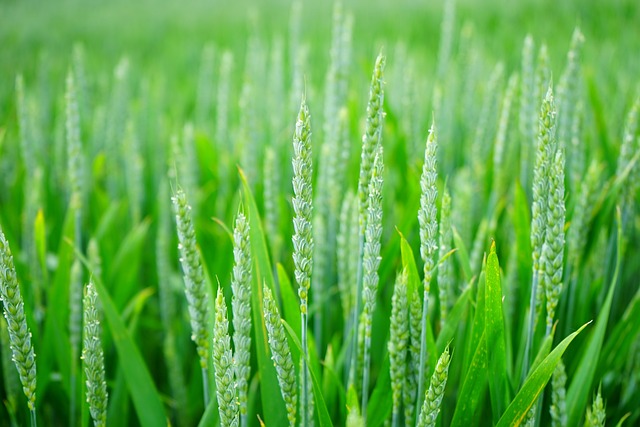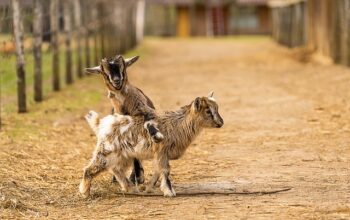Fencing a farm requires strategic planning, balancing DIY installation (cost savings, personal satisfaction) with professional help (durability, time-saving, expertise) based on budget, time, and skill. Professionals offer expert guidance on local regulations, material selection (post types, wire options), designs tailored to unique farm needs, complex terrain, and long-term solutions for enhanced property value and security. For a quality "fence for farms," professionals ensure durability, structural integrity, and customized security and efficiency.
“Considering a new fence for your farm? You have two main options: DIY installation or hiring professional contractors. This article guides you through the decision-making process, focusing on understanding your fencing needs and exploring the benefits—and drawbacks—of both approaches. From assessing your farm’s unique requirements to ensuring structural integrity and aesthetic appeal, we’ll help you weigh the pros and cons of each method. By the end, you’ll be equipped to make an informed choice for your farm’s fence.”
- Understanding Your Fencing Needs for Farms
- The Pros and Cons of DIY Farm Fence Installation
- Benefits of Hiring Professional Fencing Contractors
- Making an Informed Decision: DIY vs Professional Fencing for Farms
Understanding Your Fencing Needs for Farms
Fencing a farm involves more than just containing livestock; it’s about creating a secure, functional space that supports your agricultural goals. Understanding your specific fencing needs is crucial before deciding between DIY installation or professional help. Consider factors like the type of animals you’re keeping, the size and layout of your property, local regulations, and your own skill level.
A fence for farms should be durable enough to withstand harsh weather conditions, robust enough to keep livestock in and predators out, and designed with accessibility in mind for tasks like maintenance and moving cattle. Whether you opt for a DIY approach or professional assistance, selecting the right materials—from post types and wire options to gates and latches—is essential for creating an effective and long-lasting fence system tailored to your farm’s unique requirements.
The Pros and Cons of DIY Farm Fence Installation
DIY Farm Fence Installation: Weighing the Pros and Cons
Doing it yourself (DIY) can be appealing for farm fence installation due to cost savings and the sense of accomplishment that comes with completing a project independently. For many, the idea of installing their own fence for farms offers flexibility in terms of design and allows them to work at their own pace. It’s also an opportunity to learn new skills and connect more deeply with the physical labor involved. However, DIY projects have their challenges. Time constraints can be a significant hurdle; farming already demands long hours, adding construction work may stretch resources. Additionally, precision and skill are required for proper fence installation, including post placement, wire tensioning, and gate hinging—areas where mistakes could lead to poor results or even safety hazards.
On the other hand, enlisting professional help ensures a job well done, with experts handling all aspects from planning to final inspections. This approach saves time and reduces the risk of errors that could compromise the fence’s integrity or your safety. Professionals bring experience and knowledge about local regulations and best practices for farm fence installation. However, it comes at a cost—professional services are typically more expensive than DIY solutions. Farm owners must weigh these factors, considering their budget, available time, skill level, and long-term goals before deciding between DIY and professional assistance.
Benefits of Hiring Professional Fencing Contractors
When considering a farm fencing project, enlisting professional contractors offers numerous advantages. Their expertise in handling large-scale installations ensures your farm’s fence is built to last, with precision and attention to detail that DIY methods often struggle to match. Professional contractors possess the necessary equipment and skills to navigate complex terrain, making them ideal for remote or challenging locations on your farm.
Additionally, these experts can provide valuable insights into local regulations and permits required for fence installations, ensuring your project complies with relevant laws. They also offer a range of customization options, allowing you to select materials, designs, and styles that best suit your farm’s unique needs and aesthetic preferences. Hiring professionals guarantees a high-quality, durable fence for farms, providing long-term protection and enhancing the overall value of your property.
Making an Informed Decision: DIY vs Professional Fencing for Farms
When considering a fence for farms, making an informed decision between DIY installation and professional help is paramount. While DIY projects offer cost savings and the satisfaction of completing a task independently, fencing farms requires specialized knowledge and equipment. A professional fence installer possesses expertise in selecting the right materials, ensuring structural integrity, and adhering to local regulations—all crucial aspects for a durable and effective farm fence.
For farmers seeking long-term solutions and quality workmanship, professional assistance is often the smarter choice. Experts can provide tailored advice based on individual farm needs, from choosing between various fence types (like wooden, vinyl, or chain link) to designing layouts that maximize security and efficiency. This decision becomes even more evident when considering complex installations, such as custom-built fences or extensive perimeter protections required for large agricultural properties.
When considering a fence for farms, whether opting for DIY installation or professional assistance, understanding your specific needs is key. While DIY methods offer cost-effectiveness and hands-on satisfaction, professional contractors provide expertise, ensuring your farm’s unique requirements are met with durable, long-lasting solutions. After weighing the pros and cons, making an informed decision will safeguard your investment, enhancing your farm’s aesthetics and security for years to come.




